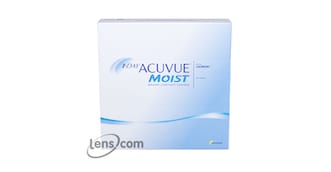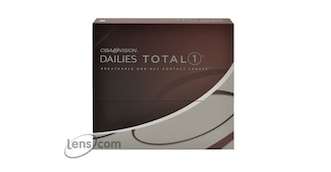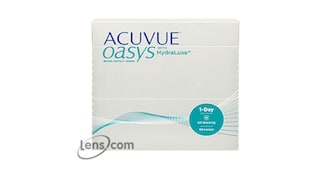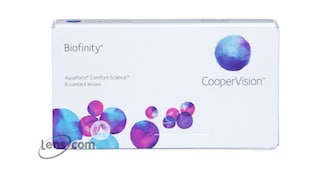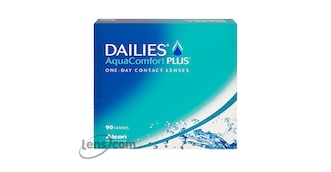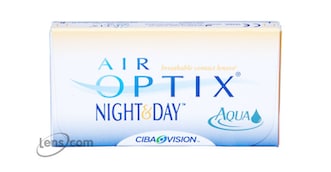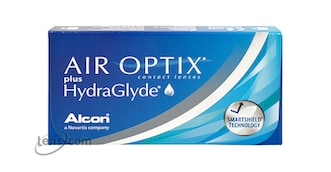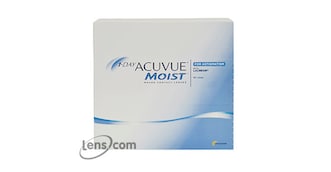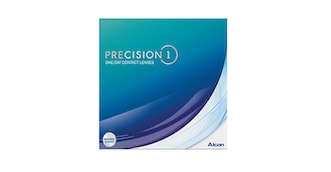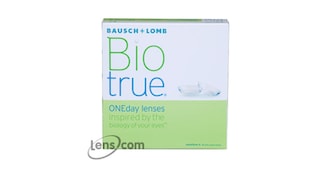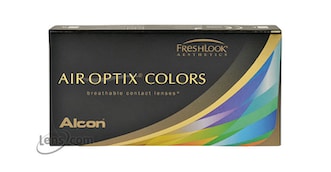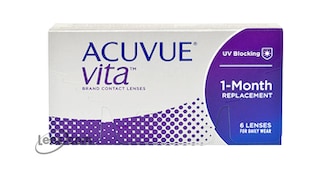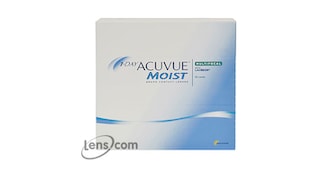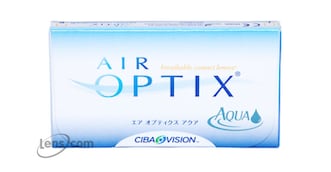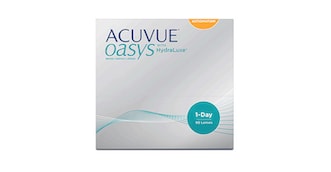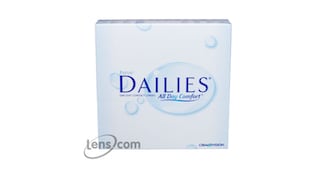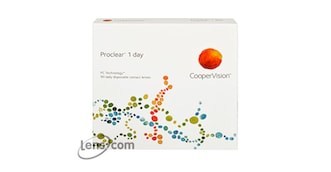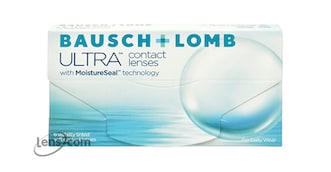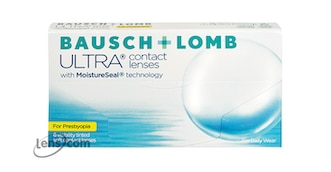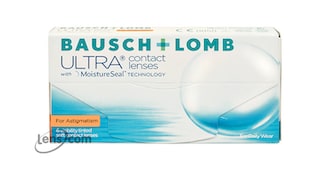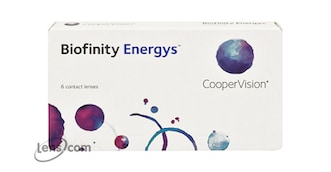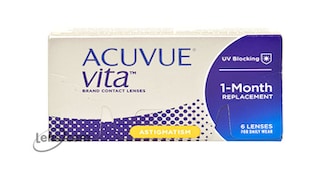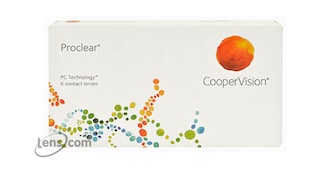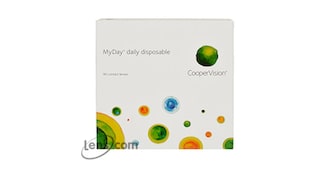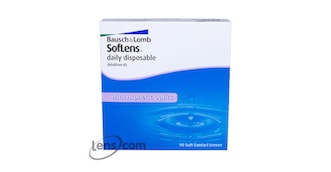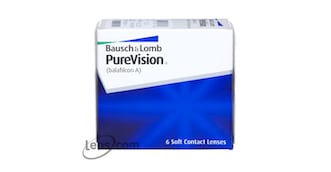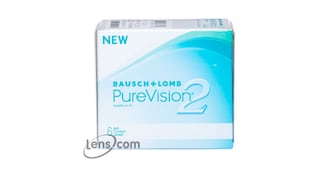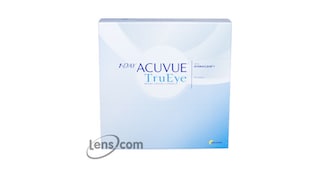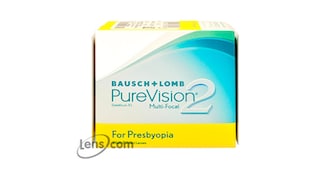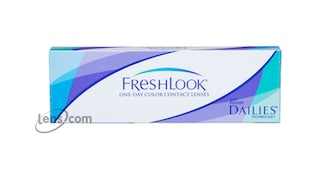Daily Vs Monthly Contact Lenses
Daily disposable contact lenses and monthly disposable contact lenses are two of the most popular types of contacts on the market. Both types have their benefits, and each offers something different. The biggest question is: which is better?
| Most Popular Daily Vs Monthly Contact Lenses Contact Lenses | |||
|---|---|---|---|
| All Daily Vs Monthly Contact Lenses Contact Lenses | |||
|---|---|---|---|
| Daily Vs Monthly Contact Lenses Contact Lenses With Rebates | |||
|---|---|---|---|
See All Available Daily Vs Monthly Contact Lenses Rebates
About Daily Vs Monthly Contact Lenses Contacts
Features of Daily Disposable Contacts
Daily disposable contact lenses, also known as dailies, are single use. “Disposable,” as defined by the United States Food and Drug Administration (FDA), means used once and discarded. With a true disposable schedule, a fresh pair of contacts is used each day.
One of the best things about dailies is they’re less prone to deposit buildup than other types of disposable contact lenses. Deposits come in the form of proteins, lipids, and other substances that are naturally found in your tears. They can accumulate on your contacts, making your contacts feel less comfortable than when they were new. Deposits can also make your eyes prone to infection. Therefore, starting each day with a fresh, clean lens is healthy for your eyes.
Dailies are also healthy for your eyes because they’re typically made of hydrogels and silicone hydrogels. These lens materials allow plenty of oxygen into the eye to keep it moist, clear, and healthy.
Aside from being healthy for your eyes, dailies are also convenient. When you’re done wearing them, simply throw them away. The convenience that dailies offer is largely why they’re great for busy professionals and those with active lifestyles, as these people may not enjoy the hassle of a lens care routine. Dailies are also a great choice for those who can’t commit to a lens care routine for whatever reason.
Additionally, dailies are ideal for new and young contact lens wearers. More often than not, those who are new to contacts have a tendency to tear or lose their contacts. This is especially true for young contact lens wearers, such as children and teenagers.
Dailies are available in a wide range of prescriptions and lens types, including toric and multifocal. Toric lenses correct astigmatism, a common eye condition that causes blurred vision at any distance, while multifocal lenses correct presbyopia, the gradual loss of your eyes' ability to focus on nearby objects. Both toric and multifocal lenses also correct nearsightedness and farsightedness, both of which may occur alongside astigmatism and presbyopia.
Take note that dailies are different from daily-wear contacts. Dailies are discarded at the end of the day, while daily-wear contacts can be reused for two to four weeks as long as they’re removed, cleaned, and stored properly every night.
Features of Monthly Disposable Contacts
Monthly disposable contact lenses, also known as monthlies, can be worn daily for up to 30 days before they need to be discarded and replaced with a fresh pair of lenses. Some monthlies are also FDA-approved for up to 30 days of continuous wear. Such lenses, known as overnight or extended wear lenses, are typically made of silicone hydrogels, which allow far more oxygen into the cornea than hydrogels.
Monthlies are also thicker than dailies because they’re built to last longer. As such, monthlies are more resistant to drying out than dailies. However, the thicker composition of monthlies means you may actually feel them on your eyes.
Because monthlies require maintenance, they’re best suited for people who can follow a lens care routine. Monthlies that are FDA-approved for extended wear are especially ideal for people who require flexible wearing schedules, such as emergency workers (e.g., firefighters, paramedics, and police officers). Monthlies that are FDA-approved for extended wear are also a good choice for people who want to sleep with their contacts without worrying about comfort.
Like dailies, monthlies are available in a wide range of prescriptions and lens types, including toric and multifocal. Monthlies can also correct astigmatism, presbyopia, nearsightedness, and farsightedness.
Many contact lens wearers prefer daily over monthly disposable contact lenses because they require less maintenance. But remember: only your eye care professional (ECP) can decide which type of contact lens best suits your needs. It’s best to follow your ECP’s guidance.
Popular Daily Disposable Contact Lenses and Monthly Disposable Contact Lenses
Dailies and monthlies are popular among contact lens wearers and ECPs alike for their health and convenience benefits. As such, there are many daily and monthly disposable contact lens brands on the market.
When it comes to dailies, popular brands include Acuvue Oasys 1-Day with HydraLuxe® Technology by Johnson & Johnson, Dailies Total1® by Alcon, and Biotrue ONEday by Bausch + Lomb. All three contacts are comfortable and non-drying — qualities that make them particularly great choices for people who experience contact lens-induced dry eye. They're also ideal for contact lens wearers looking to put down their rewetting drops.
Meanwhile, popular brands of monthly disposable contact lenses include Biofinity® by CooperVision, Bausch + Lomb ULTRA, and Air Optix® Night & Day® AQUA by Alcon. All three contacts are made of silicone hydrogel, and they can be worn daily for up to 30 days or continuously for up to six nights and seven days, after which they should be disposed of and replaced with a fresh set of contacts.
Dailies Versus Monthlies: Cost Comparison
Daily disposable contact lenses can cost anywhere from $35 to $70 per box of 90 lenses. This supply should last you three months if you wear a fresh pair of lenses every day. Meanwhile, monthly disposable contact lenses can cost $40 to $100 per box of six lenses.
It takes only 24 monthly lenses (12 per eye) to supply a year’s worth of contacts. Compare this to the 700 or more daily disposable lenses (350 or more per eye) that are needed to supply a year’s worth of contacts. From these figures, it’s easy to see that dailies cost more upfront than monthlies. However, it’s worth noting that monthly contact lens costs must also include the cost of a multipurpose cleaning solution, which could add an extra $100 to your annual lens cost.
In short, how often you replace your contact lenses will largely determine how much you spend on contacts every year. If you replace your contacts every day, expect a higher annual lens cost. If you replace your contacts every month, expect a lower annual lens cost.
Safety Tips for Contact Lenses
No matter the type of lens your ECP recommends, it’s important to take care of them properly. Irritation, eye infections, and other contact lens-related problems can be prevented by properly handling and cleaning your contacts. Take good care of your contacts by following these tips:
- Clean them daily. Daily cleaning of contacts is essential. It’s important to clean your contact lens case daily, too.
- Don’t use tap water for cleaning. Tap water is not safe for cleaning contacts because it contains germs and contaminants that can stick to the lenses. Instead, use a multipurpose cleaning solution recommended by your ECP.
- Don’t wear them when swimming or bathing. Contaminants in water can stick to your contacts if you wear them while swimming or bathing. Always take them out beforehand.
- Replace your contact lens case regularly. You should replace your contact lens case every few months to avoid contamination with germs and debris that can lead to irritation or infection.
- Never clean them with saliva. Your saliva contains bacteria that may cause eye infections.
- Always handle them with clean, dry hands. Before handling your contacts, wash your hands with mild soap and water and dry them using a clean, lint-free towel. Irritation or eye infections can easily occur if you insert or remove contacts with dirty hands.
- Don’t sleep in them. Unless your ECP says otherwise, don’t sleep in your contacts. This can put you at risk for an eye infection.
About Lens.com
Lens.com has been proudly offering high-quality contact lenses at discount prices since 1995. Choose from a variety of our daily disposable and monthly disposable contact lenses and enjoy hassle-free returns, quick shipping, and a 100% money-back satisfaction guarantee.
